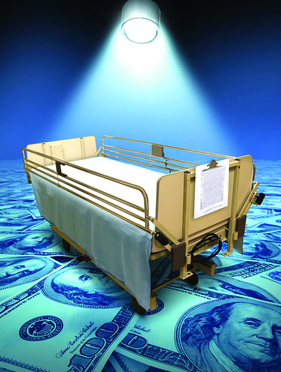With New Jersey’s estate tax on its way out, the state’s residents may begin to rethink plans to retire to Florida. As estate planners, we will be faced with the question of whether a legal change in domicile is worth our clients’ while. One possible, though lesser-known, incentive that remains a consideration for snowbirds is New Jersey’s common law “doctrine of necessaries,” which creates liability for the debts of a spouse for necessary goods and services.
History of the Doctrine
The doctrine of necessaries is rooted in the common law rule that required a husband to support his wife. Jersey Shore Medical Center-Fitkin Hospital v. Estate of Baum, 84 N.J. 137, 141 (N.J. 1980). Historically, marriage ended a woman’s right to own property or contract in her own name. The common law, therefore, imposed a duty upon a husband to support and maintain his wife in a manner commensurate with his means. Bonanno v. Bonanno, 4 N.J. 268, 273 (N.J. 1950) (citations omitted). Such support and maintenance included financial responsibility for necessary goods and services such as clothing and medical expenses, among others. See, e.g.,Capodanno v. Capodanno, 58 N.J. 113 (1971) (finding a widower liable for the expenses of his wife’s illness); Feiner v. Boynton, 73 N.J.L. 136, 137 (Sup. Ct. 1905) (finding the debt owed for the necessary clothing of a married woman is presumably the debt of her husband). The duty was not dependent upon the adequacy of a wife’s means, nor was her income-earning status or capability a factor. Bonanno, 4 N.J. at 274. Conversely, a wife did not have a duty at common law to support her husband, unless she assumed that obligation, as she instead provided him with services and society. Jersey Shore, 84 N.J. at 141 (citations omitted).



